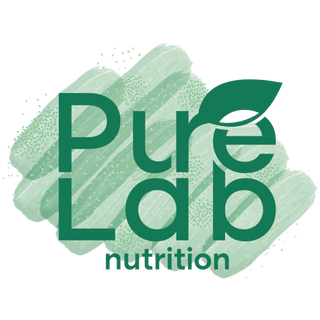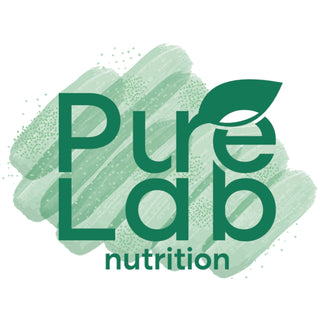A lot of noise around spirulina! Opinions differ on this food supplement which is nevertheless very fashionable.
Food spirulina is recognized as an “algae rich in proteins, vitamins and minerals”. Different civilizations have been using it for centuries. Its benefits are numerous provided that certain precautions are taken.
You are asking yourself the question: is it good to take spirulina? We tell you everything about its benefits, but also about the contraindications to know before consuming spirulina!
Why consume spirulina?
In order to fully understand the benefits of spirulina, let's first look at its composition and its beneficial effects on the body. You will quickly understand why it is good to take spirulina!
Spirulina: rich in essential nutrients
Spirulina is a photosynthetic cyanobacteria of great nutritional richness. It grows in the warm waters of lakes located in tropical regions. It is neither an algae nor a plant, but it is a (good) bacteria that needs a lot of light to grow.
A true cocktail of proteins, vitamins, trace elements and amino acids, spirulina has been recognized by the WHO since 1960 for its beneficial properties.
Let’s take a closer look at the composition of spirulina! It contains:
- plant proteins that can be assimilated by the body and amino acids;
- many vitamins (vitamins A, B1, B2, B3, B5, B6, B7, B8, B9, B12, D, E, K), except vitamin C;
- minerals such as iron, magnesium, calcium, phosphorus and potassium;
- gamma-linolenic acid, an essential fatty acid with anti-inflammatory properties that lower cholesterol.
Another advantage of spirulina? It contains no sugar, no salt, and no saturated fats.
With such a composition, it would be a shame to deprive yourself of it! Let's go into the details of the benefits it brings to the body?
Strong immune support
With such a concentration of vitamins, minerals and nutrients, spirulina can only support the immune system! The consumption of spirulina is therefore strongly recommended to improve daily well-being.
But spirulina has another ally to make the immune system stronger: phycocyanin, the active molecule in spirulina. It is a pigment that plays a dual role: it gives spirulina its blue-green color and helps support the immune system. Phycocyanin stimulates the production of white blood cells and lymphocytes. These help reduce the risk of infection when attacked by viruses and bacteria.
Antioxidant effects of spirulina
Phycocyanin, which plays an antioxidant role in the body, is not alone in its action! Spirulina contains beta-carotene and vitamin E, which have antioxidant power. Together, they preserve the body's cells and fight against premature aging.
So is it good to take spirulina? Frankly, is the question still being asked?
The list of benefits is still long:
- It acts on hair growth and purifies the scalp.
- It is ideal for running enthusiasts, as it provides a sustained energy supply and prevents muscle fatigue.
- It is ideal for preparing the skin for the sun and having a perfect tan.
Consuming spirulina is good for your well-being, but be careful to take a certain number of precautions before choosing your supplement!
We recommend our 100% pure and natural Organic Spirulina, rich in vegetable proteins, minerals and vitamins:
- ✅ Certified Organic
- ✅ Dried and cold compressed
- ✅ 5 months of treatment
- ✅ 100% clean (no additives & no excipients)
Precautions to take before consuming spirulina
Even though the benefits of spirulina are recognized, caution is required before consuming it. Here are some tips to follow before taking spirulina.
Contraindications
Spirulina supplementation is contraindicated in certain cases.
According to the recommendations of Anses , people who should not take spirulina are:
- Pregnant and breastfeeding women.
- People who have high uric acid levels in their blood, who have gout attacks or have urinary stones.
- People who suffer from phenylketonuria or who have an allergic background.
- Subjects who have muscle or liver problems.
Once these medical contraindications have been ruled out, we advise you to check the quality of spirulina as a food supplement before making your choice.
The quality and origin of spirulina
It is important to remain vigilant regarding the different types of spirulina present on the market. It is important to favor the traceability and quality of the food supplements that you consume.
We recommend that you choose a spirulina that is grown in the south of India (in our case: in the Tamil Nadu region), an environment with exceptional climatic conditions. It is important that this spirulina comes from organic farming.
You can choose a spirulina analyzed then packaged in France. Our certified organic spirulina guarantees the traceability and quality of the product.
In addition, the spirulina that makes up our food supplements is 100% pure and natural. It has been dried and cold compressed to allow perfect preservation of its nutritional benefits. An effective spirulina must contain at least 60% protein and 14% phycocyanin.
We make sure to offer quality food supplements. With our products, you can be sure that it is good to take spirulina!
The Potential Dangers of Spirulina
Despite its benefits, spirulina is the victim of many controversies. We tell you everything about the risk of contamination by toxins and the possible side effects of spirulina.
The risk of toxin contamination
Spirulina comes from natural or artificial lakes. It may therefore contain traces of heavy metals such as mercury, lead or arsenic. Pesticides, bacteria, traces of toxins or salmonella are also sometimes detected. Therefore, the origin of spirulina must be rigorously verified.
Among the criteria verified by the laboratories, the quality of the production waters must be closely monitored. The traceability of the Spirulina that you choose must be guaranteed by certificates proving its origin and quality.
With our Organic Spirulina , you are therefore certain to consume a certified product, whose origin is controlled, without any possible risk of contamination. Our high-quality spirulina contains up to 69% protein and up to 21% phycocyanins.
To conclude: is it good to take spirulina?
A controlled and quality spirulina
We can never say it enough! Before choosing your food supplement, find out about its origin and quality.
To get a good supplement, it is important to be aware of the safety standards. The traceability and transparency of a brand, allow you to obtain the certificates of analysis that attest to the composition of your spirulina, and thus choose the supplement with confidence.
The best spirulina according to the recommended dosage
Have you ever tried spirulina flakes to add to your dishes? Spirulina powder can indeed be used as a seasoning for your food. However, this is not the most suitable form, because its iodized taste and smell are not always pleasant.
The best solution for taking a spirulina cure and regaining vitality? Tablets! Easier to consume than spirulina in powder or flake form, tablets are much more practical. We recommend a cure of 2 to 3 months and 2 to 3 times a year.
What about the amount of spirulina to take each day? The maximum dosage of each tablet is 500 mg. For an effective result, we recommend that you start with 1 tablet per day for 2 to 3 days. You can then increase the intake of organic spirulina and move on to an additional tablet every 2 to 3 days. Stabilize at 4 tablets per day.
We recommend our 100% pure and natural Organic Spirulina, rich in vegetable proteins, minerals and vitamins:
- ✅ Certified Organic
- ✅ Dried and cold compressed
- ✅ 5 months of treatment
- ✅ 100% clean (no additives & no excipients)
Any time of the day?
But when should you take your spirulina supplement? Morning is often the best time to think about your dietary supplement. You can take organic spirulina with fruit juice or water for breakfast. Remember to drink enough water to avoid digestive disturbances.
If you want to benefit from the properties of spirulina at the end of the day, opt instead for taking it in the evening 30 minutes before bedtime. Organic spirulina can help improve your sleep. It is rich in tryptophan, an amino acid precursor of serotonin and melatonin, the sleep hormones.
Spirulina is also recommended for athletes looking to improve their performance. Before exercise, spirulina increases energy production. After the session, it reduces muscle discomfort and promotes recovery. Take spirulina 30 minutes before or after exercise.
For overall well-being every day!
No more doubts! To the question "is it good to take spirulina?" we answer you with a big YES! Thanks to its richness in nutrients, antioxidants and proteins, spirulina contributes to daily well-being. If you are not concerned by the medical contraindications mentioned above, do not hesitate to take a course of organic spirulina.
What if you supplemented your spirulina-based wellness routine with vitamin C? It's the only vitamin missing from spirulina! Nothing could be simpler to get back in shape: combining vitamin C with a spirulina treatment allows the body to promote the absorption of iron. It's the winning duo to avoid major bouts of fatigue. With this explosive cocktail, tone and vitality will be there.
Spirulina is also a superfood particularly recommended for vegetarians and vegans in case of nutritional deficiency. Indeed, it is an important source of iron.
Is it good to take spirulina? You now have all the cards in hand to answer this question! With our 100% pure and natural Organic Spirulina , you can count on a supplement rich in vegetable proteins, minerals and vitamins. Ideal for regaining your vitality in any season!












